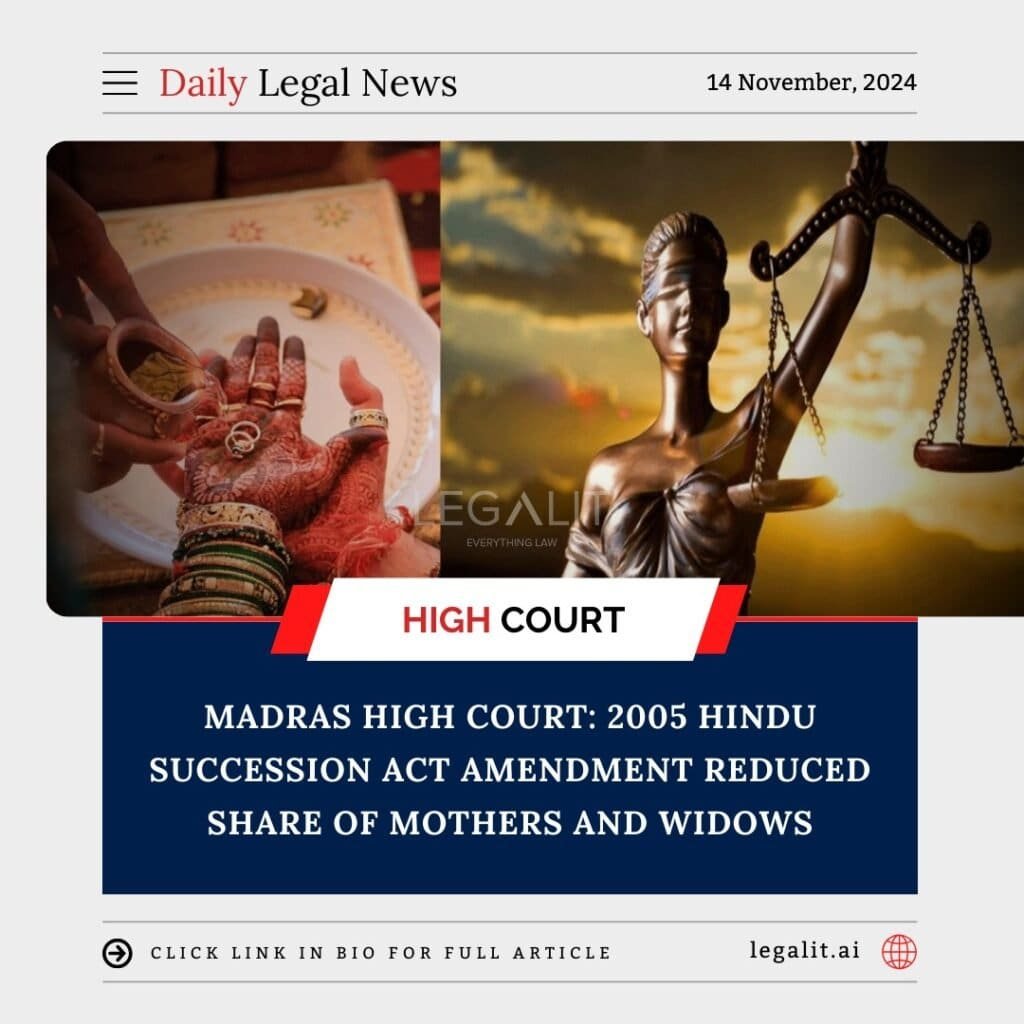
The Madras High Court has observed that the 2005 amendment to the Hindu Succession Act, which granted daughters equal inheritance rights in ancestral property, inadvertently reduced the share of mothers and widows. The court made this observation in a case where the legal heirs were contesting the distribution of property under the amended law.
Background:
The 2005 amendment to the Hindu Succession Act was a significant step towards gender equality, granting daughters the same rights as sons in terms of inheritance. However, the Madras High Court pointed out that the amendment altered the way ancestral property was distributed among heirs, resulting in a reduced share for the mother or widow when compared to the previous legal framework. The case brought into focus the unintended consequences of the amendment, which, while benefiting daughters, impacted the share of mothers and widows, who had previously received a larger portion under the old law.
Court’s Rationale:
The Madras High Court highlighted that the re-distribution of shares under the amended law may have inadvertently disadvantaged mothers and widows. The court noted that while the aim of the amendment was to ensure equal rights for daughters, the new rules have led to a dilution of the share that would have gone to a widow or mother in the absence of the amendment. This development points to a need for reviewing how the law affects different groups of legal heirs.
Existing Measures:
Under the 2005 amendment, daughters were granted equal inheritance rights in the property of their fathers, giving them a share equal to that of sons. However, the court raised concerns about the impact of this change on the shares of mothers and widows, suggesting that a closer look might be needed to ensure fairness in the distribution of property, particularly in cases where the widow or mother had been entitled to a larger share in the past.
Conclusion:
The Madras High Court’s observations shed light on a potential issue in the implementation of the 2005 Hindu Succession Act amendment, calling for a review of how property is distributed among heirs. The case underscores the complexity of balancing the rights of different groups under inheritance law, and may prompt further legal scrutiny or reforms to ensure that both daughters and mothers/widows are treated equitably.